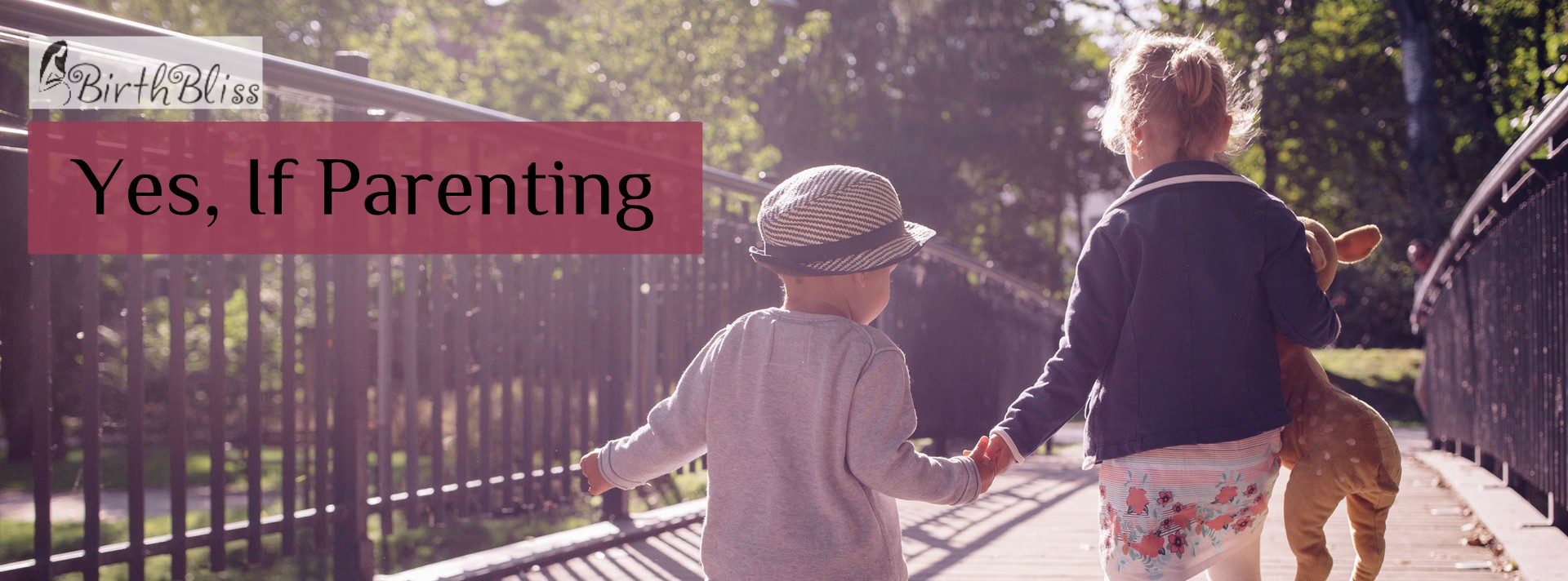
Ahren comes over and asks me if him and Julia can play outside. Immediately I want to say no, but then I take a step back and ask myself why do I want to say no? It’s because our neighbour is in the process of replacing our shared fence and for that reason our backyard is currently not fenced in. I’m wanting to say no because I want Julia and Ahren to be safe and I’m not sure that Ahren will stay in the backyard and not wander off. The solution… a yes, if. Yes, they can play outside if they stay in the backyard where I can see them while I wash dishes.
Yes, if parenting is the idea that as much as possible we try to fulfill the requests of our children (meeting their needs) but at the same time putting in stipulations so that our needs as parents are also meet.
After stories have been read, teeth been brushed and being tucked in, Julia tells me that she can’t sleep. She wants to read more stories. Again… I want to say no.
Her needs… Not sleepy, wants more stories
My needs… I need some no kid time at the end of my day
Solution: yes, if… Yes she can read stories, if she reads them to herself and she turns her light off and goes to sleep when she gets tired.
Result: both of us are happy and both us have our need meet.
So the next time that your child asks you something and you immediately want to say no to the request, take a step back and think about why you are wanting to say no. Is there a safety issue? Is there something you are worried that won’t get done? Really reflect on your own motivations for saying no. Then figure out if there is a way to offer your child a conditional yes. A yes with a condition that meets your needs. When your children are young, like mine, the idea for the condition will likely have to come from you, but as child gets bigger so does their capacity for problem solving. They will very quickly begin to suggest conditions so that their requests are granted. I first learned this technique as a teacher and I can attest to the power that children have to problem solve when they are highly motivated to do so.
Here’s an example from my teaching days. It’s the end of gym class and the kids have a few minutes for free play with some of the equipment. Four children come over and ask to play with the scooters. (Little square boards with 4 wheels on the bottom). I want to say no because last time they played with them, too many of them ran into each other and got hurt. Because these kids are older and because I had been doing this for a while with them, I did not suggest the conditions for a yes if. I simply stated my concern about the safety issue and asked them if they had ideas on how to make the scooters safe. And sure enough, they rose to the occasion. They suggested moving the benchs to section off a portion of the gym for scooters and allowing only a couple of students on scooters are a time. Again the end result… they were happy because they got to play with the scooters. I was happy because everyone stayed safe.
So can you use this technique with your own kids?
I’ll leave you with a yes, if.
Yes you can use it, if you promise to let me know how it goes. 😉





3 thoughts on “Yes, If Parenting”
Good one, Marie! But what do you do if your child wants something, and not excepting any conditions?
Hi Inna,
I totally agree. Sometimes they will dig their heels in and not want to budge in any way. It happens to me too. And in that case, then the answer just becomes a plain old “no” (which when you are dealing with toddlers, often does not go over very well). It’s definitely a delicate balance – meeting their needs and ours! 🙂
Reading this was very timely for me Marie as I just finished a great book called “Raising Our Children, Raising Ourselves”. Among other gems, the author is all for changing the ‘no’ to yes. Thanks for passing on.